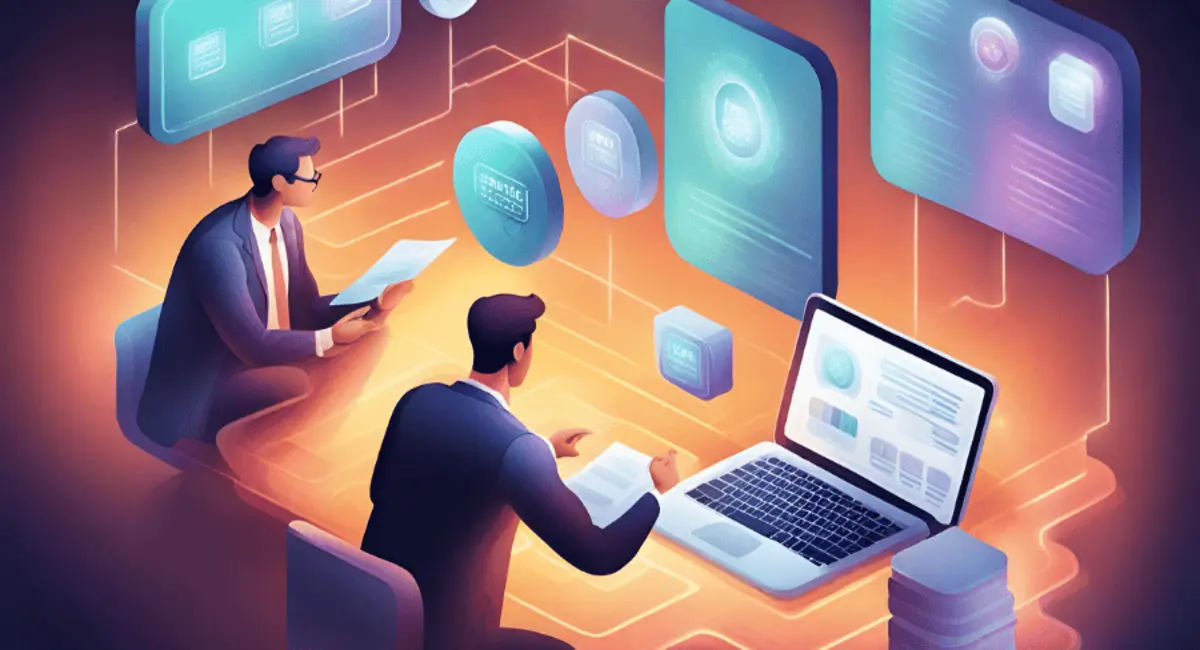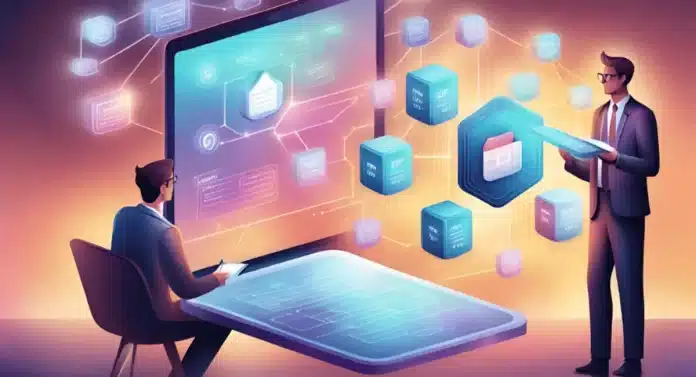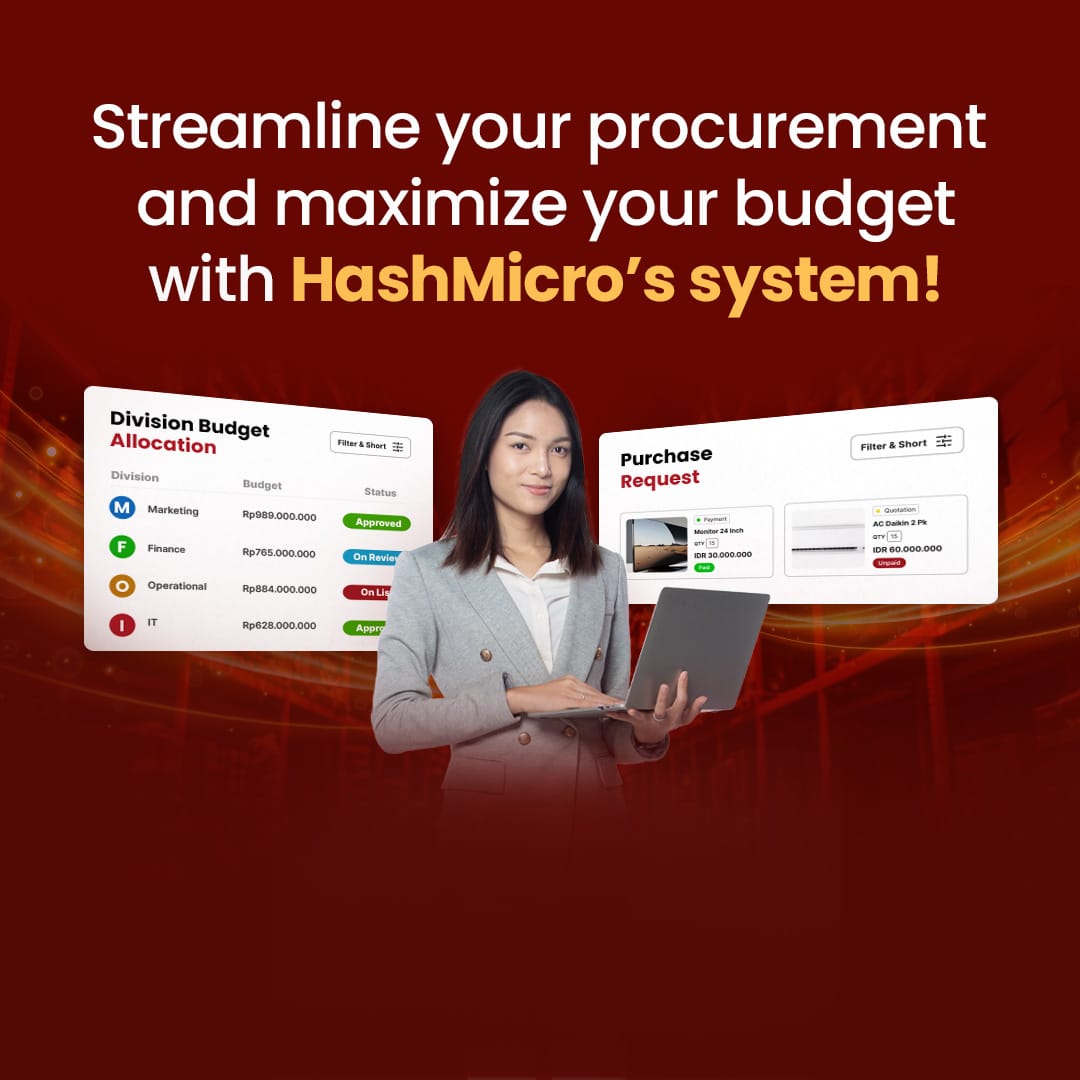ERP system procurement is a solution designed to streamline and simplify the procurement process, addressing the challenges of tedious and time-consuming tasks. Many businesses in Singapore and globally struggle with tracking company purchases, making ERP systems an essential tool for efficiency.
Think about HashMicro ERP Procurement Software as an integrated solution, which provides supplier administration, automatic purchase orders, and real-time tracking. These characteristics make procurement smooth and efficient by increasing productivity, lowering errors, and offering insightful information.
This article will define ERP system procurement, highlight its benefits, and explore its features to help you optimize your procurement process. Understanding these aspects can significantly improve your company’s financial performance and operational workflow.
Table of Content:
Table of Content
Key Takeaways
|
What is ERP System Procurement?
The procurement module in an ERP system helps businesses save money by managing purchasing more efficiently. It simplifies tasks like requesting inventory, tracking deliveries, and managing invoices, ensuring the entire process is accurate and easy to handle.
Enterprise Resource Planning (ERP) is a suite of applications that are built to manage and integrate core business processes. ERP systems create and integrate modules such as accounting, sales, inventory, production and planning, human resource management, and procurement.
The procurement module is a vital part of ERP because it connects seamlessly with other modules like inventory and accounting. For example, when procurement updates stock levels, the inventory module reflects the changes instantly, and the accounting module adjusts budgets in real-time.
There is usually a lot of fraud in the procurement process. Thus, you need this system to avoid those problems. HashMicro’s procurement software can be your choice to help procurement activities efficiently and complete your business needs smoothly.
HashMicro is the best ERP for e-procurement management in your company. Click the banner below to see the right pricing scheme for your needs!
The Benefits of ERP System Procurement
ERP system procurement for your business activities will provide many benefits and uses that you can’t find from other systems. This can improve the procurement process in an integrated manner. It also can show the development of the company and the financial prospects of your business.
There are the following four reasons that make this system beneficial for your business:
- Full traceability: ERP system procurement will give you the benefit of tracking your Products easily. Some notifications will appear automatically when the order has been sent and received.
- Easy backorder management: Tracking shipments and payment of goods from vendors will match the number of items you’ve already received.
- Controlled procurement costs: Procurement activities become more controlled with budgeting management and cost centers per department or project. These benefits will prevent you from misusing data and provide you with better financial planning.
- Timely payment: In this system, there is an automatic notification for invoices from vendors that you have not paid. These notifications can help you increase procurement efficiency in business so that there are no obstacles.
- Avoids duplicate orders: The primary advantage is that it eliminates the possibility of placing duplicate orders. When a company decides to scale the business, POs can assist in maintaining visibility into what has been ordered and from whom.
- Keeps track of incoming orders: POs aid in the tracking of incoming orders, and a well-organized purchase order system can aid in the simplification of the inventory and shipping processes.
Also Read: Benefits of ERP – Discover more how ERP can transform your business operations and bring numerous advantages.
The Features in ERP System Procurement

An explanation of the main features that you can find in HashMicro’s ERP system procurement is as follows:
1. PO, RFQ, dan PR management
This feature can give you easy access to instantly convert purchase requests into purchase orders. With this feature, you can create and send supply requests to different suppliers at once.
2. PR approval management
Secondly, the feature is related to PR approval management. This feature will make it easier for you to approve purchase requests from various business locations with just a click. In addition, you can safely supervise procurement activities within your company and avoid misuse of data.
3. Online portal for suppliers
This system provides the main features created for vendors who cooperate with your company. The online portal for suppliers features a unique portal for vendors to share their catalogs. You can also do the tender process through this portal to get the best offer easily.
4. Vendor rating
Another critical feature is vendor rating. ERP system procurement provides a feature for assessing your vendor or supplier to measure their performance. You can rate vendors based on service, product quality, price, delivery time, etc.
This feature will make it easier for you to determine which vendors you can choose to cooperate with. Thus, your procurement process can run smoothly.
5. Blanket Order Management
Do you have a problem in the execution of procurement planning that does not match the realities in the field? If yes, then the blanket order management feature can be your solution.
This feature can help you order goods according to the price and time you have agreed with the supplier. In addition, you can also send recurring orders automatically without worrying about something being missed.
6. Landed cost calculations
The last feature that you can find is landed cost calculations. Using this feature, you can find out the total cost of purchasing your product. Not only that, but this feature also facilitates you to know other procurement costs, such as taxes, insurance, and currency conversion.
After knowing the features of procurement software, explore our comprehensive tips on selecting the perfect one that aligns with your business needs and goals, to ensure a seamless procurement process and improved efficiency.
Why Do You Need ERP System Procurement for Your Business?

There are several reasons why you need an ERP system procurement for your business:
- ERP system procurement is connected to three other modules: inventory management system, CRM sales, and accounting system. The integration of this software can make it easier for you to carry out your business operations efficiently.
- A strong reason for you to need ERP procurement is its easy use. This system provides many features to easily access your business procurement data wherever and whenever you are, which makes it easier for processes like source-to-pay and procure-to-pay.
- The importance of this system will help you keep business operations under control. This system already facilitates you with excellent features, such as RFQ, PR, and PO. These features can help you track and supervise procurement processes within your company. Therefore, you can keep business processes running smoothly and avoid fraud or misuse of data.
Also Read: procurement software – Explore the best software options available this year and find the right fit for your business needs.
Hashy AI Fact

Need to Know
Procurement processes are simplified with Hashy AI, automating tasks like supplier management and invoice processing. This leads to greater accuracy, faster decisions, and improved overall efficiency.
Request a free demo today!
Conclusion
An ERP procurement system is designed to enhance efficiency and control in the procurement process, helping businesses manage costs effectively while ensuring operational excellence. With key benefits such as full traceability, streamlined backorder management, controlled procurement expenses, and timely payments, this system provides the tools to mitigate risks and improve decision-making.
Elevate your procurement processes with HashMicro’s ERP Procurement Software, the best ERP software for automating workflows and enhancing transparency in a single integrated system. Transform your operations and achieve greater efficiency today. Request a free demo now to explore the full potential of our solution.

FAQ About ERP System Procurement
-
What is ERP System Procurement, and How Does It Differ from Traditional Procurement Methods?
This refers to the use of Enterprise Resource Planning software to manage and integrate various aspects of the procurement process. Unlike traditional methods, ERP streamlines operations by providing a centralized platform for tasks such as order management, vendor communication, and cost control.
-
How Does ERP System Procurement Enhance Traceability in the Procurement Process?
ERP systems offer full traceability by automatically tracking and notifying users about the status of products, from order initiation to receipt. This feature ensures transparency and allows for quick identification of any issues in the procurement pipeline.
-
What Key Features Does an ERP System Procurement Typically Include?
Common features include Purchase Order (PO), Request for Quotation (RFQ), and Purchase Request (PR) management, PR approval workflows, online portals for suppliers, vendor rating systems, blanket order management, and landed cost calculations. These features aim to simplify and optimize the procurement workflow.
-
How Does ERP System Procurement Contribute to Controlled Procurement Costs?
ERP systems assist in controlling procurement costs by implementing budgeting management and allocating cost centers per department or project. This ensures that expenditures align with financial planning, preventing misuse of data and offering greater control over the entire procurement process.
-
Can ERP System Procurement Integrate with Other Business Modules, and What Are the Advantages of Such Integration?
Yes, it is often integrates seamlessly with modules like inventory management, CRM sales, and accounting. This integration ensures a holistic approach to business operations, allowing for real-time data sharing between departments. The advantages include improved operational efficiency, accurate financial reporting, and a comprehensive view of business processes.





































